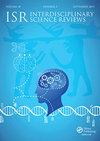小说能导致亲社会行为吗?早期现代性的排斥、暴力、同理心和文学
IF 1
4区 综合性期刊
Q3 MULTIDISCIPLINARY SCIENCES
引用次数: 0
摘要
摘要在这篇短文中,我想通过关注早期现代性中移情与文学之间的联系,来探讨情感理论和文学分析中积极与消极的关系,情感理论在胡安·路易斯·维维斯(1492-1590)的《De anima et vita》(1538)或奥利瓦·德·萨布科(1562-1626?)的《Nueva Filosofía》(1587)等著作中得到了有力的阐述。我们从这样一个命题开始,即虚构的故事可能会促使我们关心他人并帮助他们。事实上,小说可以让我们更有同理心,从而让我们成为更好的人,这是一个强有力的假设,已经成为大量讨论和出版物的主题。然而,当我们继续研究小说是否以及如何通过移情反应导致亲社会行为,以及作者可能采用哪些叙事策略来引发读者的移情时,我们需要承认:(1)移情和亲社会行为之间的联系,即移情-利他主义假说,仍然是一个有争议的问题,需要更多的经验证据来支持;(2)移情作者的意图和受众接受之间没有直接的对应关系,这一现象可以通过失败的移情或移情不准确等概念来讨论。本文章由计算机程序翻译,如有差异,请以英文原文为准。
Can fiction lead to prosocial behaviour? Exclusion, violence, empathy, and literature in early modernity
ABSTRACT In this short essay, I want to address the relationship between positivity and negativity in affect theories and literary analysis by focusing on the connection between empathy and literature in early modernity, a period when affect theories emerge robustly and are articulated in treatises such as De anima et vita (1538) by Juan Luis Vives (1492–1590) or Nueva Filosofía (1587) by Oliva de Sabuco (1562–1626?). We begin with the proposition that fictional narratives may move us to care for others and help them. Indeed, the idea that fiction can make us more empathetic and, thus, turn us into better human beings is a powerful hypothesis that has been the subject of a great number of discussions and publications. However, as we continue to investigate whether and how fiction may lead to prosocial behaviour via empathic responses and what are the narrative strategies that authors may employ to elicit empathy in readers, we need to acknowledge that: (1) the connection between empathy and prosocial behaviour, known as the empathy–altruism hypothesis, is still a controversial one and more empirical evidence is needed to back it up; and (2) there is no direct correspondence between empathic authorial intention and audience reception, a phenomenon that can be discussed through notions such as failed empathy or empathic inaccuracy.
求助全文
通过发布文献求助,成功后即可免费获取论文全文。
去求助
来源期刊

Interdisciplinary Science Reviews
综合性期刊-综合性期刊
CiteScore
2.30
自引率
9.10%
发文量
20
审稿时长
>12 weeks
期刊介绍:
Interdisciplinary Science Reviews is a quarterly journal that aims to explore the social, philosophical and historical interrelations of the natural sciences, engineering, mathematics, medicine and technology with the social sciences, humanities and arts.
 求助内容:
求助内容: 应助结果提醒方式:
应助结果提醒方式:


